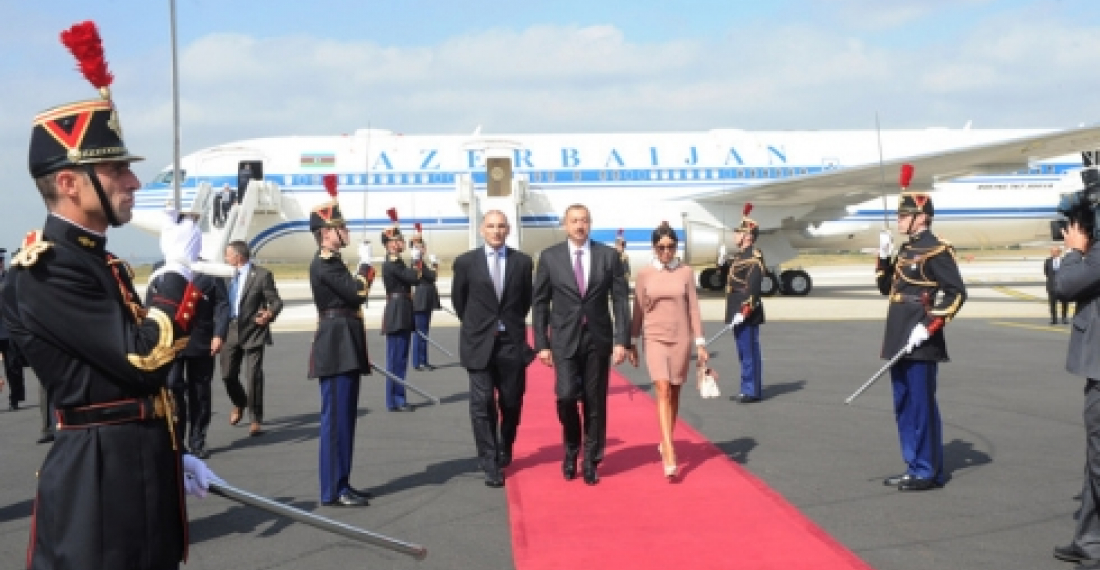The President of Azerbaijan Ilham Aliyev has started a working visit to France. On Tuesday afternoon at 1445 he will be received at the Elysee Palace by President Francois Hollande.
The Azerbaijani leader arrived in Paris yesterday and has already had a serious of meetings with the heads of leading French companies, including Total and GDF Suez.
Commonspace.eu political editor said in a comment that it is significant that the visit to France is taking place only a few weeks after President Hollande has taken office. Relations between France and Azerbaijan took a turn for the worst when in the last months of the Sarkozy presidency the Armenian lobby pushed for a resolution to criminalise denial of the Armenian genocide. The resolution was eventually overtunred by the Constitutional Council. Relations between France and Azerbaijan are however flourishing at the economic level and the French energy company Total recently announced large gas finds in blocks it is exploring in the Azerbaijani segment of the Caspian.
source: Commonspace.eu
photo: president Aliev arriving at Orly Airport in Paris on 17 September 2012 (picture courtesy of the press Service of the president of Azerbaijan).







